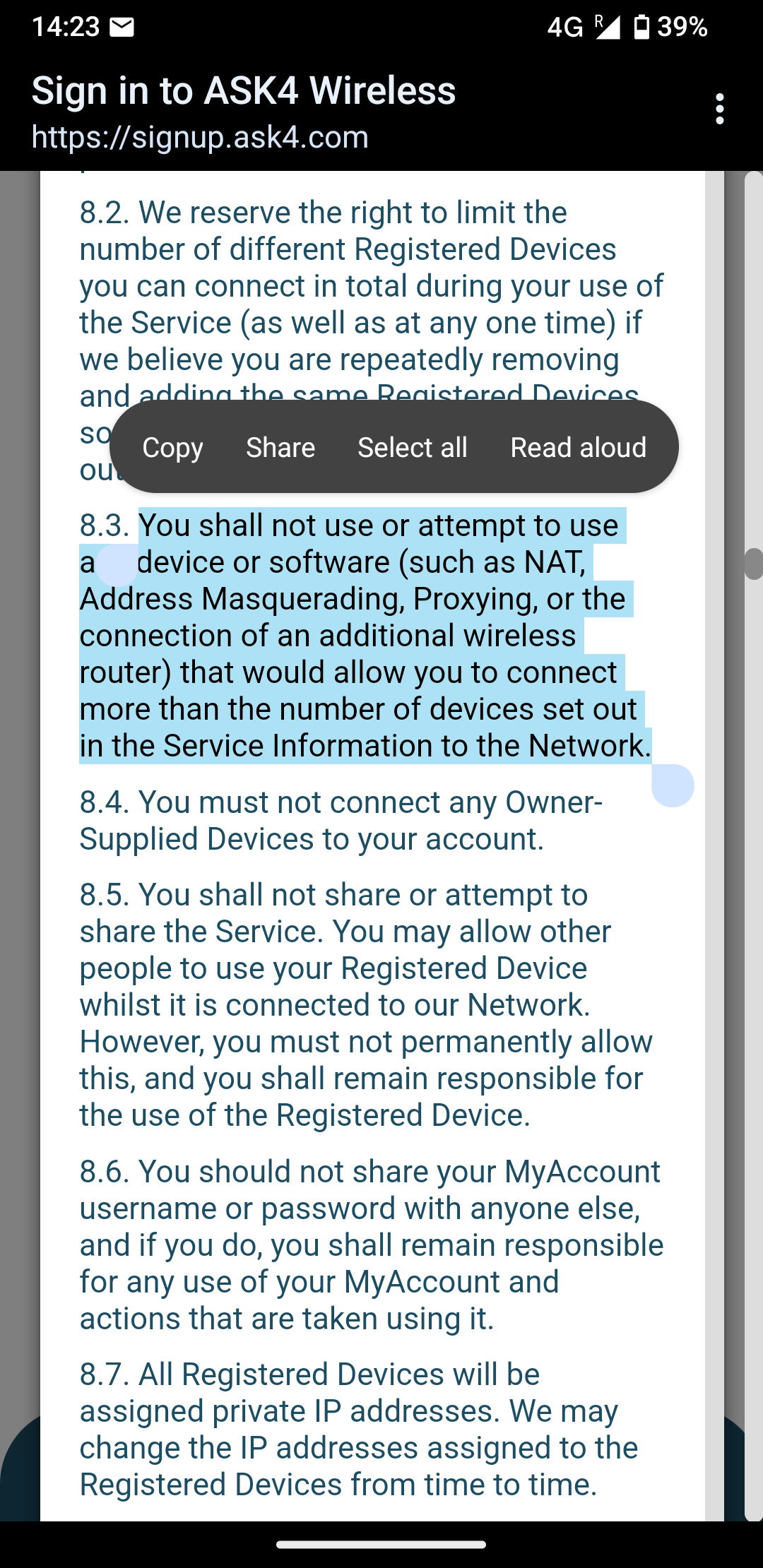this post was submitted on 07 Sep 2024
472 points (92.6% liked)
Technology
70285 readers
4438 users here now
This is a most excellent place for technology news and articles.
Our Rules
- Follow the lemmy.world rules.
- Only tech related news or articles.
- Be excellent to each other!
- Mod approved content bots can post up to 10 articles per day.
- Threads asking for personal tech support may be deleted.
- Politics threads may be removed.
- No memes allowed as posts, OK to post as comments.
- Only approved bots from the list below, this includes using AI responses and summaries. To ask if your bot can be added please contact a mod.
- Check for duplicates before posting, duplicates may be removed
- Accounts 7 days and younger will have their posts automatically removed.
Approved Bots
founded 2 years ago
MODERATORS
you are viewing a single comment's thread
view the rest of the comments
view the rest of the comments

That seems pretty standard stuff. My dorm had the same policy, because they operated their own mesh network and didn't want students sending out their own radio signals that would have absolutely made their wireless network not work well.
Is there some reason you need your own router?
ETA: The student dorm people probably meant a network switch. Regular, non-techy people don't usually know the difference between a router and a switch.
Yeah, the interference argument is fair, but I think this is also the ISP (totally separate third party) trying to protect the paid plans they sell for connecting more than one device...
It's definitely 90% of the reason
So it's a network operated by a third party? That's interesting. The handful of universities I've been to maintain their own.
Where I went to school, originally the dorms were on the university network but a year in they offloaded us onto regular, commercial ISPs. The change was great for us since the university network was very strict on stuff like torrents (using DPI any torrent, even legal, got you disconnected for 24h)
My university had student apartments, each had their own router. No weird rules since it wasn't the university's network at all, it belonged to whoever lived in the apartment. Full router access, connect whatever, put it in bridge mode and connect your own if you want.
If there's enough space between them, it would be less of an issue. If it was in a multifamily high rise with hundreds of units, I would expect it to cause issues.
Is this a problem with 5G networks? There are more channels and they don't go through walls as well, right?
Tl;Dr It's complicated.
Do you mean 5Ghz networks (5G is cellular tech, after all)? If so, 5Ghz can travel through walls, but it doesn't travel as far, because there's an inverse relationship between range and channel width. Also, 5Ghz has a shorter wavelength; some of the signal's light will get absorbed by the walls, but not all of it.
Ultimately, you'd still have the same problem: too many radios sharing a limited range of frequencies on a band would interfere with each other if sufficiently close.
It would be akin to having everyone playing different music at full volume on their own personal speaker; you'll inevitably hear the people closest to you. Radios can't "hear" anything outside of their chosen frequency (channel), but if other people nearby are also on that channel, you might catch or lose some unintended packets, triggering a resend event (TCP) or causing stuttering/lag (UDP).
The number of channels available for 5Ghz varies by country, with the EU having the most, iirc. In the US, if you try to force your router to use one of the blacklisted channels, your devices will likely not connect (unless they were directly imported), despite being able to use the 5Ghz spectrum.
In that case, just set up a router level VPN. The university probably doesn't give a shit. Which is why the help desk IT kid said it's fine, probably.
It's the 3rd party ISP just being greedy. The ISP may not even care as long as you're not running an insane amount of traffic through it. Often this type of stuff is added to TOSs to allow them the option, if you're being a bad actor.